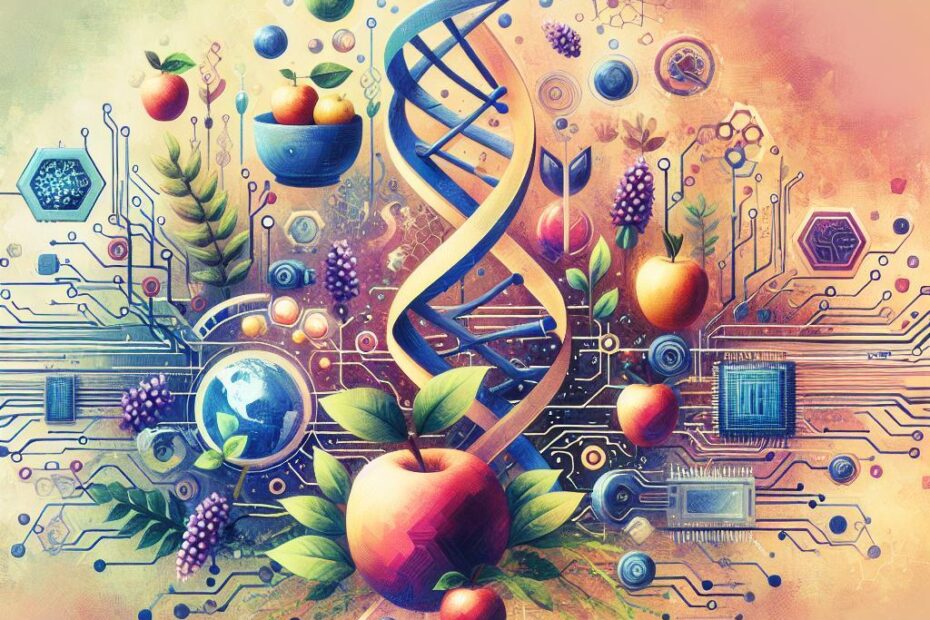Organic Matters Examples: Exploring the World of Natural Materials
When it comes to sustainability and eco-friendliness, organic matters play a crucial role in various aspects of our daily lives. From the food we eat to the clothing we wear and the products we use, organic materials offer a sustainable alternative to their synthetic counterparts. In this article, we will dive into the world of organic matters examples, exploring different natural materials that are not only better for the environment but also beneficial for our health and well-being.
Introduction to Organic Matters
Organic matters refer to materials that are derived from natural sources and produced without the use of synthetic chemicals or pesticides. These materials are biodegradable, renewable, and can be easily recycled, making them a popular choice for environmentally-conscious consumers. Organic matters examples can be found in various industries, including agriculture, fashion, beauty, and household products. By opting for organic materials, we can reduce our carbon footprint, support sustainable practices, and protect our planet for future generations.
Types of Organic Matters Examples
-
Organic Cotton: Organic cotton is grown without the use of synthetic pesticides or fertilizers, making it a sustainable and environmentally-friendly alternative to conventional cotton. Organic cotton is softer, hypoallergenic, and free from harmful chemicals, making it ideal for sensitive skin. By choosing organic cotton clothing, bedding, and towels, you can support sustainable farming practices and reduce your exposure to toxins.
-
Organic Bamboo: Bamboo is a fast-growing and renewable resource that can be transformed into a wide range of products, including clothing, furniture, and household items. Organic bamboo is grown without pesticides or fertilizers, making it a sustainable and eco-friendly material choice. Bamboo is naturally antibacterial, moisture-wicking, and biodegradable, making it an excellent alternative to traditional materials like plastic and polyester.
-
Organic Hemp: Hemp is a versatile plant that can be used to make textiles, paper, building materials, and even food products. Organic hemp is grown without synthetic chemicals or GMOs, making it a sustainable and environmentally-friendly choice. Hemp is strong, durable, and biodegradable, making it an ideal material for eco-conscious consumers looking for sustainable alternatives.
-
Organic Wool: Organic wool is derived from sheep that are raised without the use of synthetic hormones or antibiotics. Organic wool is softer, hypoallergenic, and free from harmful chemicals, making it a popular choice for clothing, bedding, and accessories. By choosing organic wool products, you can support ethical animal welfare practices and reduce your exposure to toxins.
Benefits of Organic Matters
-
Environmental Benefits: Organic matters are grown and produced using sustainable practices that minimize harm to the environment. By choosing organic materials, you can reduce your carbon footprint, minimize pollution, and support biodiversity.
-
Health Benefits: Organic matters are free from synthetic chemicals, pesticides, and GMOs that can be harmful to our health. By opting for organic products, you can reduce your exposure to toxins and allergens, promoting better health and well-being.
-
Social Benefits: Organic matters support ethical farming practices, fair labor conditions, and animal welfare standards. By choosing organic materials, you can support responsible production methods and contribute to a more sustainable and ethical supply chain.
Practical Tips for Using Organic Matters
-
Read Labels Carefully: When shopping for organic products, look for certifications such as GOTS (Global Organic Textile Standard) for textiles and USDA Organic for food items. These certifications ensure that the products meet strict organic standards and are free from harmful chemicals.
-
Choose Local and Seasonal: Support local farmers and artisans by choosing organic products that are grown or produced in your region. By choosing seasonal and locally-sourced organic matters, you can reduce transportation emissions and support your local economy.
-
DIY Projects: Get creative and try making your own organic products at home, such as homemade skincare, cleaning supplies, and even clothing. By using organic materials and natural ingredients, you can reduce waste, save money, and customize products to suit your preferences.
Case Studies: Real-World Examples of Organic Matters
-
Patagonia: Outdoor clothing brand Patagonia is known for its commitment to sustainability and environmental conservation. The company uses organic cotton, hemp, and recycled materials in its products, reducing its environmental impact and supporting ethical production practices.
-
Dr. Bronner’s: Dr. Bronner’s is a popular brand of organic and fair trade skincare products that are made with natural and organic ingredients. The company uses organic coconut oil, olive oil, and hemp oil in its products, promoting sustainable farming practices and ethical sourcing.
-
Seventh Generation: Household cleaning brand Seventh Generation offers a range of eco-friendly and organic cleaning products that are free from synthetic chemicals and toxins. The company uses plant-based ingredients like organic essential oils and biodegradable surfactants, promoting a cleaner and healthier home environment.
Conclusion
Organic matters examples encompass a wide range of natural materials that offer sustainable, eco-friendly, and healthy alternatives to conventional products. By choosing organic materials in our daily lives, we can support responsible production practices, minimize our environmental footprint, and promote a healthier planet for future generations. Whether it’s organic cotton clothing, bamboo household items, or hemp skincare products, organic matters play a vital role in creating a more sustainable and ethical world. Let’s embrace the power of organic materials and make a positive impact on our planet and our well-being.
